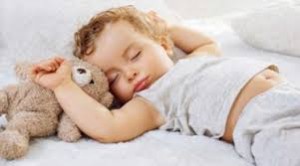Did you read the recent article that made its way around the Internet last week? Are you worried now that your toddler should no longer be napping? I’m here to tell you that while you should stop your worries, you should not stop napping your two year old!
There is there plenty of research validating the necessity of naps for toddlers. The above article, which has caused many a parent this past week to challenge their own toddler’s napping schedules, admits that “the articles analyzed in the new report were not top-of-the-line studies, meaning that children weren’t randomly assigned to take naps and often the children weren’t observed firsthand.” In addition, there is no information in this study relative to the timing or the length of the naps, both very important determinants of the quality of day sleep and how it may impact a child’s night sleep.
According to Dr. Marc Weissbluth, author of Healthy Sleep Habits; Happy Child:
*57% of children are napping at 4 years of age,
*92% of children are napping at 36 months of age, and
*95% of children are taking one nap a day at 24 months of age.
A two year old still requires quality day sleep in order to make it to bedtime without becoming overtired. If your two year old’s nap seems to be interfering with falling asleep at night, it is possible that you may need to shorten the afternoon nap. Before doing that, be sure that he is not going to sleep too late. A child who goes to bed too late can appear that he is not tired but, in reality, is overtired. Remember that an overtired child has a much harder time settling into sleep, wakes more often throughout the night, and wakes earlier in the morning.
Significant research has been conducted in recent years on the importance of naps for toddlers. University of Massachusetts Amherst cognitive neuroscientist Rebecca Spencer led a study of 40 preschoolers looking at the relationship between napping and a toddler’s memory recall. The study found that for preschoolers, skipping naptime could have a negative impact on their ability to learn. “Until now, there was nothing to support teachers who feel that naps can really help young children. There had been no concrete science behind that,” Dr. Rebecca Spencer said in a press release. “Children should not only be given the opportunity, they should be encouraged to sleep by creating an environment which supports sleep.”
Professor Monique LeBourgeois from the University of Colorado Boulder measured the sleep patterns of toddlers aged two to three and found that “insufficient sleep in the form of missing a nap taxes the way toddlers express different feelings, and, over time, may shape their developing emotional brains and put them at risk for lifelong, mood-related problems. Just like good nutrition, adequate sleep is a basic need that gives children the best chance of getting what is most important from the people and things they experience each day,” LeBourgeois said.”
What happens when our children are napping and why is this nap so important to their developing brains? “Sleep is a time when memories are processed and consolidated,” said Dr. Sanjeev Kothare, New York University professor of neurology and director of NYU Langone’s Pediatric Sleep Disorder Center. Sifting through and organizing memories and experiences are necessary components of learning. Giving our toddlers this time each day should be as important as providing them with healthy meals and learning how to share.
It can be common for children around the age of 24 months to go through a period of time when they refuse their naps. This can often be attributed to a new sense of independence and autonomy, rather than the need to drop the nap. The trick is not to give up the nap; instead, parents should consistently stick with the routine and schedule that has been working. Additionally, don’t let naptime turn into a power struggle. With time and patience, that nap should fall back into place.
The moral of the story…children need their day sleep! Don’t give up a nap too early. You will all be happier with a well-rested toddler in the house!
